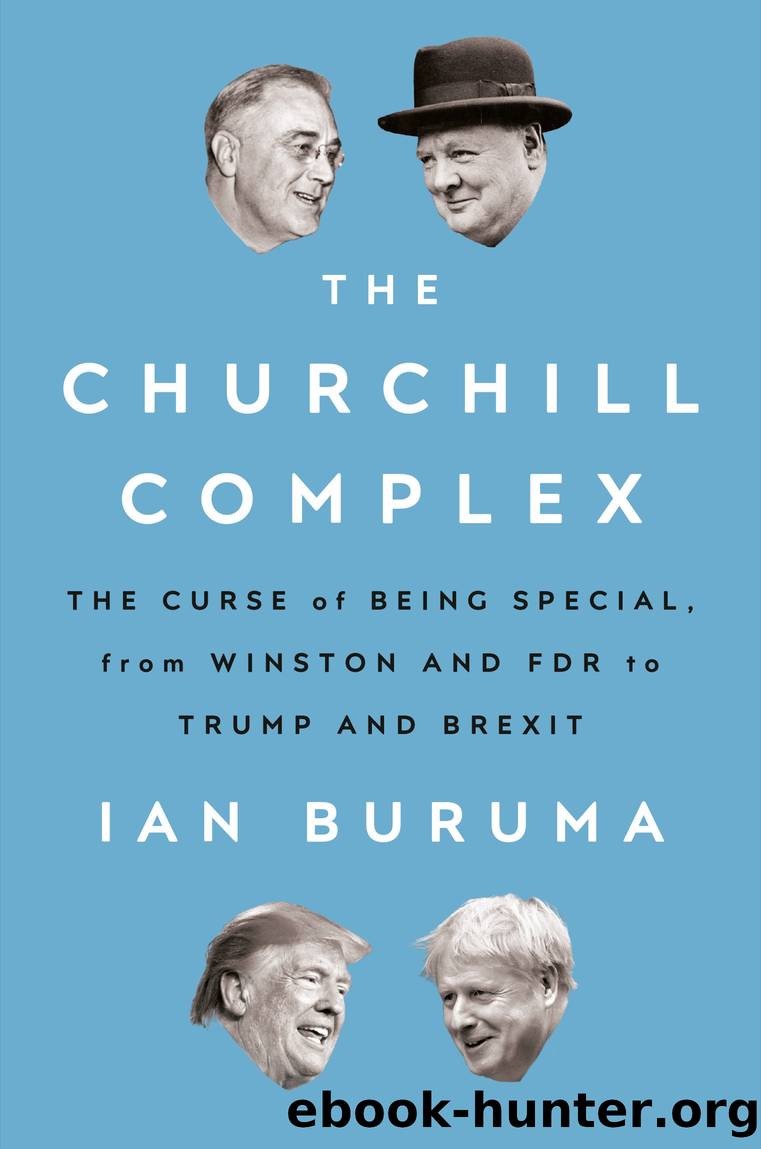The Churchill Complex by Ian Buruma

Author:Ian Buruma [Buruma, Ian]
Language: eng
Format: epub
Publisher: Penguin Publishing Group
Published: 2020-09-02T00:00:00+00:00
* * *
—
One of the ironies of the Thatcher era is that Britain’s prestige in Europe was actually quite high in the mid-1980s. Winning a war and standing up to Communism, as well as her blazing style, had given Thatcher an aura of glamour. She was extremely popular in Eastern Europe especially. And partly because Grenada had dented her trust in the US, she did what postwar British prime ministers had done before to show their country still mattered on the international stage; she reached out to Moscow. Thatcher had recognized Gorbachev as a man “to do business” with before the Americans did. Indeed, she appears to have enjoyed her debates with the Russian leader even more than her encounters with the charming but intellectually limited Reagan. She was in awe of the president’s power, but never rated him as a serious thinker. Rides in golf carts were not really her style. She much preferred a serious discussion about policy with a worthy opponent. The fact that Gorbachev stopped over in Britain in 1987 on his way to his first summit with Reagan in Washington was a small sign that Britain could still at least pretend to play the role of the European broker between East and West.
However, Thatcher’s most important contribution to European affairs had nothing to do with the US or the Soviet Union. She was responsible, together with Jacques Delors, president of the European Commission, for radically changing the European Community through the Single European Act. Delors, a typical French left-wing dirigiste, favored a single market with uniform rules and open borders because it would move the EEC closer to a federation. This was precisely not Thatcher’s aim. She was a British Gaullist, who favored a loose economic community of sovereign nation-states. But she was so convinced that a free-trading single market would bring “Thatcherism” to Europe that she chose to forget that her economic goal had political implications. It was a marriage of convenience that would soon turn sulfurous. Beginning as an ally, Delors became the main foreign hate figure for British “Eurosceptics,” including the prime minister herself. “Up Yours, Delors!” was the headline in The Sun, a dependably chauvinist tabloid paper, when the commissioner promoted a single European currency in 1990.
In any event, Thatcher had it in her gift to play the role at last that many Europeans, and quite a few Britons, as well as a large number of important Americans, had advocated for a long time. She could have made sure that Britain played a leading part in European affairs without alienating the Americans. Sufficient trust could have been built on both sides of the Atlantic to anchor the Anglo-American order in an integrating Europe. The Germans wanted it. The small northern nations certainly wanted it. Even the French might have been brought along. But it was not to be. Thatcher blew her chance.
Personal relations had something to do with this. Thatcher had little patience with foreigners, aside from Americans. There was a certain mutual fascination between Thatcher and Mitterrand, it is true.
Download
This site does not store any files on its server. We only index and link to content provided by other sites. Please contact the content providers to delete copyright contents if any and email us, we'll remove relevant links or contents immediately.
| Africa | Americas |
| Arctic & Antarctica | Asia |
| Australia & Oceania | Europe |
| Middle East | Russia |
| United States | World |
| Ancient Civilizations | Military |
| Historical Study & Educational Resources |
Magic and Divination in Early Islam by Emilie Savage-Smith;(1197)
Ambition and Desire: The Dangerous Life of Josephine Bonaparte by Kate Williams(1087)
Operation Vengeance: The Astonishing Aerial Ambush That Changed World War II by Dan Hampton(986)
What Really Happened: The Death of Hitler by Robert J. Hutchinson(871)
London in the Twentieth Century by Jerry White(848)
Time of the Magicians by Wolfram Eilenberger(844)
Twilight of the Gods by Ian W. Toll(813)
The Japanese by Christopher Harding(803)
Papillon by Henry Charrière(796)
Lenin: A Biography by Robert Service(780)
The Devil You Know by Charles M. Blow(779)
Twelve Caesars by Mary Beard(769)
Freemasons for Dummies by Hodapp Christopher;(749)
The Churchill Complex by Ian Buruma(731)
Napolean Hill Collection by Napoleon Hill(706)
The Enlightenment by Ritchie Robertson(693)
Henry III by David Carpenter;(690)
Bohemians, Bootleggers, Flappers, and Swells: The Best of Early Vanity Fair by Bohemians Bootleggers Flappers & Swells- The Best of Early Vanity Fair (epub)(688)
The Rise and Triumph of the Modern Self by Unknown(659)
